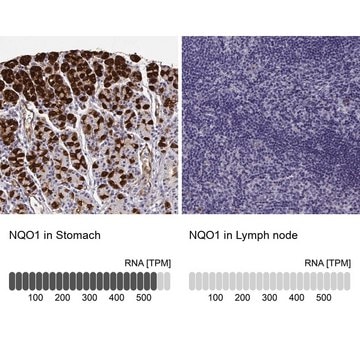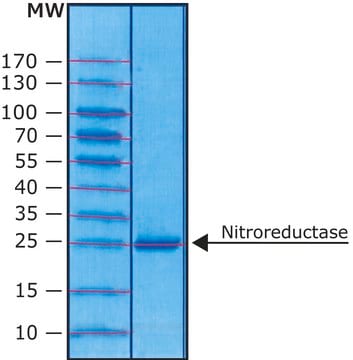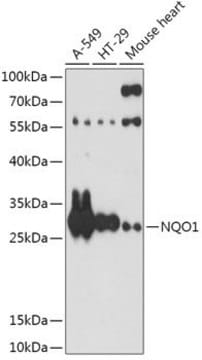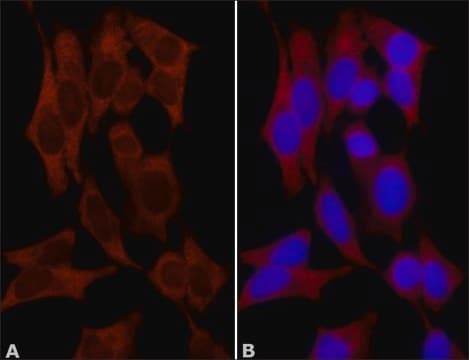SRP6539
NQO1 human
recombinant, expressed in E. coli, ≥90% (SDS-PAGE)
Synonym(s):
Azoreductase, DT-Diaphorase (DTD), Dioxin-inducible 1, Disphorase-4 (DIA4), Menadione Reductase, NAD(P)H Dehydrogenase (Quinine) 1 (NQO1), NAD(P)H Quinone Oxireductase, Phylloquinone Reductase, Quinone Oxidoreductase 1, Quinone Reductase 1 (QR1)
About This Item
Recommended Products
biological source
human
recombinant
expressed in E. coli
Assay
≥90% (SDS-PAGE)
form
liquid
mol wt
~30 kDa (Human NQO1 aa 1-274 is fused at the C-terminus to a His-tag.)
packaging
pkg of 10 and 50 μg
impurities
<0.1 EU/μg endotoxin (LAL test)
UniProt accession no.
shipped in
wet ice
storage temp.
−20°C
Gene Information
human ... NQO1(1728)
General description
Biochem/physiol Actions
Physical form
Signal Word
Warning
Hazard Statements
Precautionary Statements
Hazard Classifications
Eye Irrit. 2
Storage Class Code
10 - Combustible liquids
WGK
WGK 1
Flash Point(F)
Not applicable
Flash Point(C)
Not applicable
Certificates of Analysis (COA)
Search for Certificates of Analysis (COA) by entering the products Lot/Batch Number. Lot and Batch Numbers can be found on a product’s label following the words ‘Lot’ or ‘Batch’.
Already Own This Product?
Find documentation for the products that you have recently purchased in the Document Library.
Our team of scientists has experience in all areas of research including Life Science, Material Science, Chemical Synthesis, Chromatography, Analytical and many others.
Contact Technical Service




![Nitrate Reductase (NAD[P]H) from Aspergillus niger lyophilized powder, ≥300 units/g solid](/deepweb/assets/sigmaaldrich/product/images/309/282/2a67ae4d-ca55-4f0b-96ec-34748ff8a21e/640/2a67ae4d-ca55-4f0b-96ec-34748ff8a21e.jpg)




